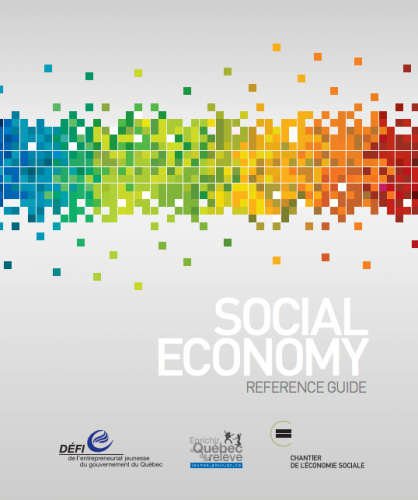This guide is a reference tool on the social economy. It was designed for people developing educational activities on the social economy to provide them with reference materials and tools that will help them master the concepts they will be presenting. The Boîte à outils de sensibilisation à l’économie sociale pour les jeunes de 14 à 35 ans [Social economy education toolbox for youth aged 14–35] contains examples of activities to complement this reference guide.
In 2006, the Chantier’s youth committee and the Alliance de recherche université communauté – Économie sociale [University and community research alliance on the social economy, known by its French acronym ARUC-ES] developed and conducted a survey to examine the perceptions of Québec youth about the social economy. Over 500 young people took part in this consultation. Among the areas of consideration that emerged from the survey, we specifically noted the following needs:
- Promotion: develop information and promotional tools on the social economy.
- Training: present the participatory and democratic management model in training materials on entrepreneurship.
- Consumption: use responsible consumption as a “gateway” to the social economy because this issue has the potential to serve as a good introduction for youth to the social economy.
The Chantier de l’économie sociale responded, as part of its 2009–2014 youth action strategy, by creating a social economy toolkit for young people aged 14 to 35 and this reference guide.
Contents:
I. Definition
II. Social Economy Enterprises Take Different Forms
III. The Social Economy: Key Player in a Plural Economy
IV. History of the Social Economy in Québec
V. Portrait of the Social Economy in Québec
VI. A Variety of Missions
VII. Social Economy or Social Entrepreneurship
VIII. Anti-Poverty Work
IX. Lucrative Markets, Competition and Subsidies
X. The Social Economy: A Responsible Consumer Choice
XI. The Social Economy: A Sustainable Development Choice
XII. The Social Economy: Québec Invention or Planetary Movement?
XIII. Challenges and Issues
Conclusion: Change the World Through a Democratic Economy
Resources for Social Economy Enterprises





